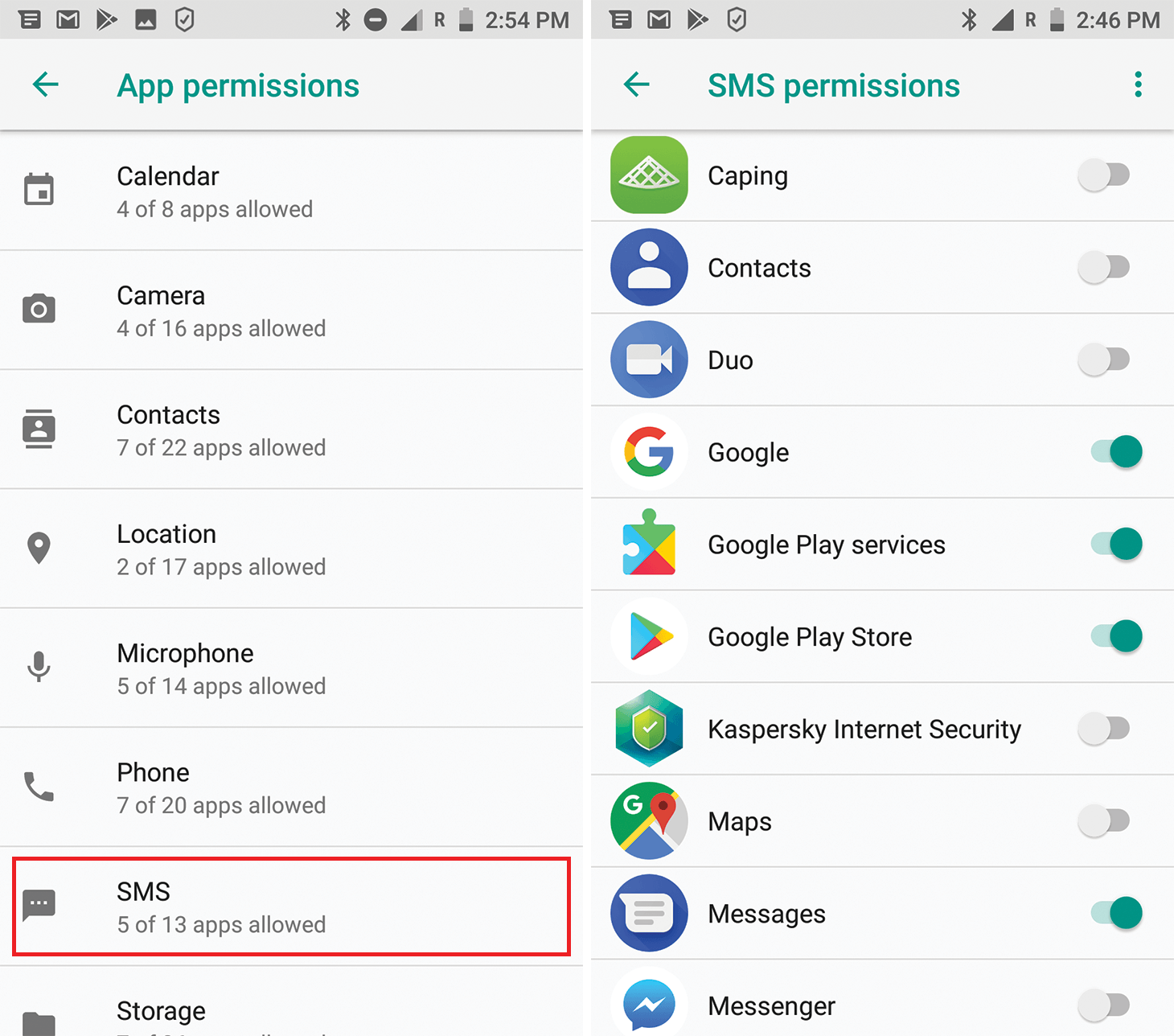
- How to check app permissions android how to#
- How to check app permissions android update#
- How to check app permissions android full#
- How to check app permissions android for android#
By tapping on a specific permissions you'll see the options to enable/disable it.
How to check app permissions android full#
You'll see the full list of enabled and disabled permissions.
How to check app permissions android how to#
How to enable/disable apps permissions on Android 10 devicesįirst, how to access permissions on Android 10: Go to device's Settings -> Apps & notifications -> tap on "See all XX apps" and select the wanted app. I'll take 2 examples, 1 app with not so vital permissions and another app with mandatory full permissions access for its good work. In this guide I'll show you how to enable permission for an app on a Google Pixel device with Android 10. The best way to determine what is happening with your data is to check the app's privacy policy. A privacy policy will explain whether the app only uses permissions to provide its services–or whether it is also harvesting your data for its own greedy purposes.App permissions means what your app can do and access on your smartphone. Forums like Reddit and Quora can usually provide some details about an app – particularly if it is known to be invasive. Checking online to see whether the app is reputable is a good start.

So, how can you tell if it is safe to accept app permissions?įirst and foremost, it is important to consider the data ethics and trustworthiness of an app's developer. This data could be compiled into a database about you and might even be shared with third parties or sold onto advertisers or data aggregators. Looking at the app's privacy policy can show whether it intends to sell on your information However, there is nothing to stop the app's developer from also using your location data to find out where you live, to figure out where you like to go and to potentially track you – even when you aren't exercising. In order to perform this service, the app genuinely requires access to your GPS settings. This allows you to see how far you have traveled while jogging or walking, for example. Some apps, such as fitness apps, use location data to track your daily exercise routines. It is important to note that just because an app requires certain permissions does not mean that it isn't also abusing them. Is an app safe if it genuinely requires permissions?
How to check app permissions android for android#
Check out our best VPN for Android page for more information about these services and a list of the best for android users. If you want to improve your internet privacy, then one of the best and easiest things you can do to achieve this is to use a VPN.
How to check app permissions android update#
To update which apps have access to Location Services (or to switch off Location Services altogether):


This can cause apps to request a wider variety of permissions. Some phones and tablets have more sensors or features that may be available to apps. It is important to be aware that the permissions available to apps may differ depending on the device you use. Deny: This prevents the app from using the permission setting, even when you’re using the app.If you agree, it can use the permission until you close the app. Ask every time: The app will ask your permission every time you open the app.Only while using the app: The permission only applies when you're using that app.All the time: This setting will permit the app to use the permission (usually to track your location) at any time, even when you’re not actively using the app.


 0 kommentar(er)
0 kommentar(er)
